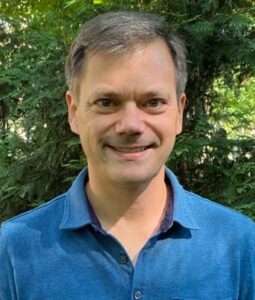Prof. Greg Wagner
Department of Mechanical Engineering
Northwestern University – Evanston (IL), US
June 22, 2021 – 4.00 pm (CEST)
Zoom Meeting
https://us02web.zoom.us/j/86558894136?pwd=K0ZpTlNJYnJ1dFFTelFCQjNZeVhGZz09
Meeting ID: 865 5889 4136
Passcode: compmech21
YouTube Live channel
https://www.youtube.com/channel/UCbuPu16F7DAuqSEX63agXyA
Additive manufacturing (AM) brings advantages for the fabrication of metal parts compared with traditional techniques, including the ability to create complex geometries with reduced production lead time and less material waste. However, the intricacy of the additive process and the extreme thermal environments involved can lead to material defects, heterogeneous microstructures, and wide variation in properties, leading to unpredictable and sometimes inferior performance of AM-built parts. Computational simulation can be used to understand and predict the effects of various process parameters on the resulting material, and to suggest strategies to optimize ultimate part performance. In this talk, I present computational approaches to this problem developed in my research group that are based on a combination of detailed multi-physics modeling with data-driven techniques using machine learning. Examples include the use of melt-pool-scale thermal-fluid simulations to train a neural network for fast temperature predictions near the laser track, and the use of thermal history data in a convolutional neural network (CNN) to predict microstructure and properties.
 Biography: Greg Wagner received his Ph.D. in Mechanical Engineering from Northwestern University in 2001. He spent over 12 years as a staff member and later manager in the Thermal/Fluid Science and Engineering department at Sandia National Laboratories in Livermore, CA, where his work included multiscale and multi-physics computational methods, multiphase and particulate flow simulation, extended timescale methods for atomistic simulation, and large-scale engineering code development. In January 2015 he joined the faculty of the Mechanical Engineering department at Northwestern. His current research focuses on applying novel simulation methods and high performance computing to multiphase flows and flows with complex and moving geometries. He is the author or co-author of over 60 journal articles, and his awards include the Zienkiewicz Prize for Numerical Methods in Engineering and the NIST Additive Manufacturing Benchmark Challenge award. In 2021 he was named the Bette and Neison Harris Chair in Teaching Excellence.
Biography: Greg Wagner received his Ph.D. in Mechanical Engineering from Northwestern University in 2001. He spent over 12 years as a staff member and later manager in the Thermal/Fluid Science and Engineering department at Sandia National Laboratories in Livermore, CA, where his work included multiscale and multi-physics computational methods, multiphase and particulate flow simulation, extended timescale methods for atomistic simulation, and large-scale engineering code development. In January 2015 he joined the faculty of the Mechanical Engineering department at Northwestern. His current research focuses on applying novel simulation methods and high performance computing to multiphase flows and flows with complex and moving geometries. He is the author or co-author of over 60 journal articles, and his awards include the Zienkiewicz Prize for Numerical Methods in Engineering and the NIST Additive Manufacturing Benchmark Challenge award. In 2021 he was named the Bette and Neison Harris Chair in Teaching Excellence.


